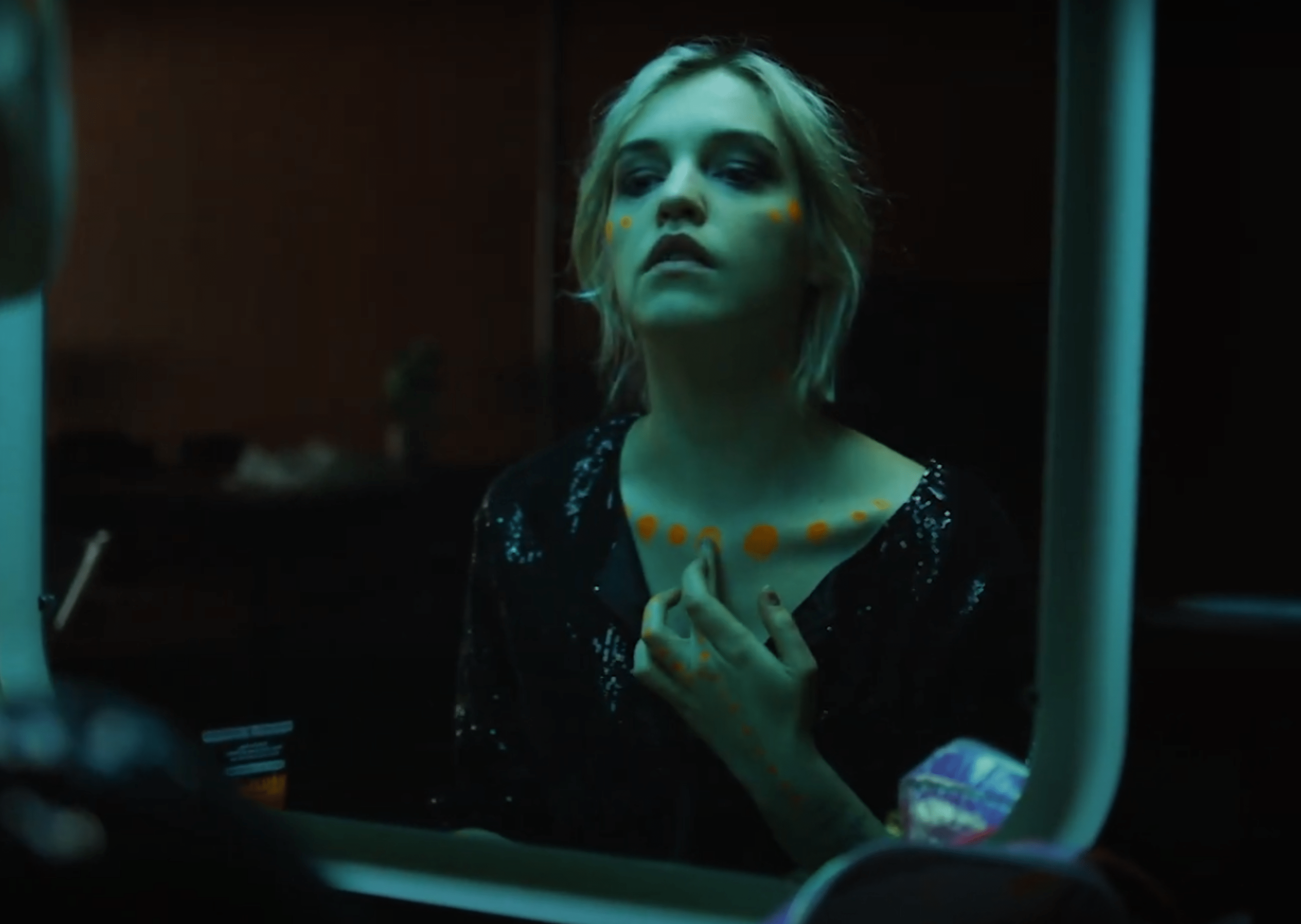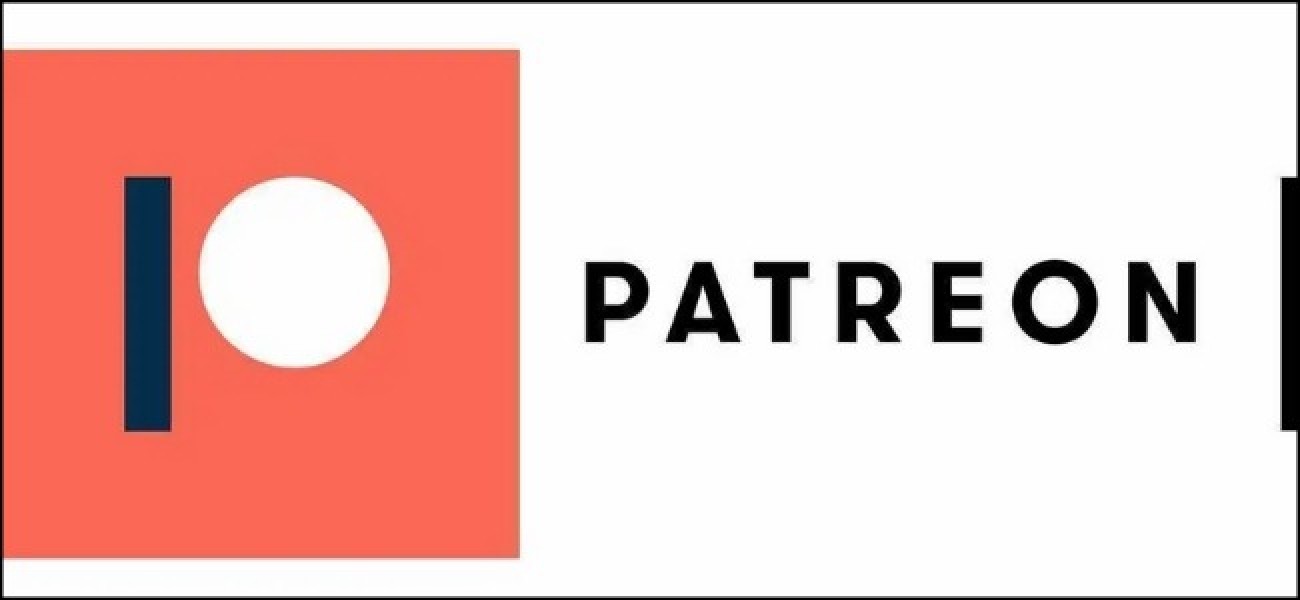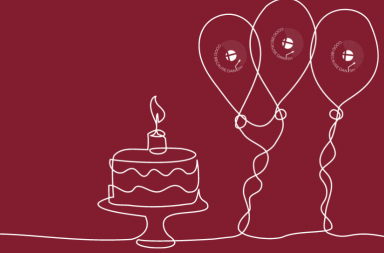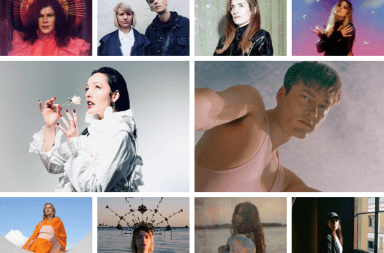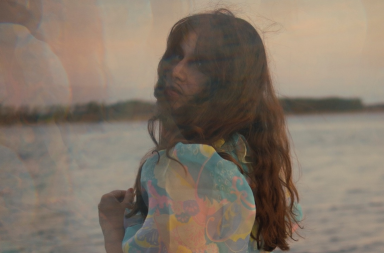
Lydmor dropped another single today! It’s called “If You Want Capacity“ and it is yet another great piece of music which will make your body move and your brain work hard.
Jenny Rossander (a.k.a. Lydmor) is an “unboxable” artist. Whenever you think you can put a label on her music, describe her sound or say “this is Lydmor’s style”, she jumps out of that box with the next thing she releases. Her new single “If You Want Capacity” does exactly that — surprises on every level.
Preceded by “Someone We Used To Love”, the new song is another dancefloor-filler. I love how I find new layers and little nuances with each listen. “If You Want Capacity” shows how complex pop and electro music can be. The song’s vibe is very intriguing. Somewhat dreamy, slightly mysterious, showing a whole new side of Lydmor. Lyrically, we can hear a powerful statement in the new single. This prompted us to discuss the song with Lydmor.
We had a long and interesting conversation about “If You Want Capacity”, about what Lydmor is up to, about life, about what has been on her mind lately… It was an inspiring chat, as always.
You can read the interview below and enjoy the new song along with a music video recorded at Train, a nightclub in Aarhus, without an audience, but with Lydmor as you know her.
You have a new song “If You Want Capacity” coming out on 28. August. What is the message behind the song?
It’s kind of like a slogan. Usually, when people ask me about the idea and the message behind a song, I answer that artists don’t have that. But this song does: if you want capacity, you gotta lean into the love you breathe. This sentence popped into my head while I was writing the song. Expanding capacity is what everybody needs to do right now. The capacity for understanding other people or the capacity within oneself. So I thought the word “capacity” was so interesting, I figured it is my favourite word, my favourite thing in people. Like, meeting someone and feeling “oh, there’s a person with big capacity”. With “If You Want Capacity” I wanted to make a sassy song that says, “hey, if you want the good stuff, you gotta bring the good stuff in.”
As an artist, do you think there is a line between expanding your own creative capacity and losing your personal style?
No. I feel like trying to define my style is never healthy for me creatively. It’s been years since I thought about my own style. I just create shit and I hope that people can still recognise me. And even if they can’t, it is also fun. If people say, “oh my god, we had no idea you could make this sort of stuff”, I’ll be like, “oh yeah”. Happy to surprise the audience.
Your two latest singles, “Someone We Used to Love” and “If You Want Capacity”, show a slightly different face of yours, musically. Do you think of these changes in your sound, or do you simply follow the artistic vibe you’re in at the moment?
Every time you think you know what I am, I change. When Billie Eilish said that genres are dead, I thought “yes, finally somebody from the mainstream is saying it.” I feel like my audience is up to join me on any journey as long as the journey makes sense. So I focus on what makes sense to me: personal development.
Throughout my whole career, I’ve been trying to learn not to think of what people expect of me. That constant pressure of expectations is very unhealthy. It takes a war to get rid of. It’s not one decision “from now on, I won’t care what other people expect of me.” It is a continuous fight. I realise that I’d stopped caring, but then once again catch myself trying to create what I think people want me to create.
That was my struggle and a big part of the problem that made me move to Shanghai in 2016. Now, after the Shanghai album, after everything that has happened in my career and in my life, I feel freer than ever.
Do you feel like you’ve learnt to eliminate the obstacles for your capacity as an artist?
Yeah, probably. In a way. I’ve definitely expanded my capacity as an artist and learnt to give fewer fucks about what other people think. It sounds so simple and so naive but it’s not. I really believe that it’s unhealthy for an artist to overanalyse the whole genre issue and how people consume music nowadays.
“If You Want Capacity” also addresses sexism. What annoys you the most when it comes to the discussion about women in the music industry?
The list is so long. It annoys the shit out of me when people try to diminish the problem of sexism in the world and pretend it’s not there. It annoys me when people publicly say that they want gender equality, but when someone tries to do something concrete, they are like, “no, don’t do that”. It annoys me when people are against the change that is happening. I see a lot of people acting spoiled. Especially in regards to gender and race. Having the skin colour that mainstream media is most interested in, and refusing to give space to people who don’t have such privilege shows very spoiled behaviour. I don’t understand how people can say that they don’t want to do this. I get angry about it, angry to the point that I get tears in my eyes.
“If You Want Capacity” is my slogan song. The line “you want attention, not advice” represents every loud douchebag on Facebook who complains that they “can’t say anything” these days. The truth is, they are not open to learning. They just want to shout and be in the spotlight.
Do you ever think that things have gone too far on both sides? Perhaps, social media ruined the debate, made it too polarised?
I don’t think so. A lot of people say that feminists are getting hysterical. But I have not seen any hysterical feminist posts. I think there is a tendency to demonise what people are afraid of. If I see a feminist being hysterical and nuts about nothing, I will think about it. There have been times when I was sceptical about some actions of people from “my side”. But none of them were as violent as those from the “ruling class”.
Do you feel women’s capacity in music is limited by the fact that they have to explain more than men do? Do you find it harder not to care what others think about you and your music because you are a woman?
I’m not sure about it. However, I recently read about a study on the impostor syndrome that had interesting conclusions. It says that if you’re a minority in your field, your impostor syndrome is likely to be more severe. It applies to women in music, black people in positions of authority, and Muslims anywhere. It shows that the oppression we experience is not only created outside. We have also internalised it, created these little internal horrors for ourselves.
I was recently invited to represent the electronic scene on Danish TV, alongside WhoMadeWho. The day before, I was freaking out, impostor syndrome-ing all over the place, thinking that my music is shit, that I can’t play live and now everyone will find out. But I did it and it went fine. Having to fight those thoughts is one of the biggest struggles. Another struggle is that the outside oppression can be so subtle. You can’t even point at it directly. You have to go at it through science, through the big picture. Because there’s never going to be a white man with a cigar, saying, “I won’t sign you ‘cause you’re a woman.”
So now I’m not asking for attention, I’m asking for advice: did you find any tools to deal with those struggles?
That’s great, I can give that! I have friends that are also successful people in their industries. There’s this girl, we call each other a lot. When she calls me in panic before work, I reassure her that she is great at what she does. And when I call her, convinced that I can’t play live, she says, “You can. Remember, you are great at playing live, you love it.” That helps. Because sometimes I can’t do it by myself, it’s too immense. I hope one day I’ll be a saner person who doesn’t fall into these dark pits of self-doubt.
You’re involved in a lot of different projects at the moment. How does it feel to be expanding your own capacity?
Right now is a very exciting time, I feel like many of my dreams come true. It is also weird, because I feel like all the good things come out of dark or weak moments. I am a co-host of a radio show Mon Amie Complexe on the Danish radio station P6 Beat, along with Louise Lolles. It is a show about the wonder of creativity and creative process.
I’ve been thinking so much about what it means to be creative, to have this job. A big part of it has disappeared during the lockdown: touring, meetings, big shows. What’s left is just me, in my palace of production, creating shit almost every day. I’m working on a theatre thing, and on a score for a movie and a TV show. I keep creating my own songs. It is so interesting, the process of creation. It is so weird and unpredictable.
Writing a score for a feature film is something I’ve always dreamt of doing. The movie director contacted me when I was heartbroken. I told her, “I’m sorry, I really want to talk to you, because I am so interested. But I just have to tell you that I’m completely fucked.” That honest and beautiful conversation brought us closer, and she ended up choosing me to do the score. Now I am so happy to work with a director like that, who saw me at my worst.
I feel like the universe is trying to teach me something. I don’t know what, but there is obviously a lesson out there for me. I guess, it is about leaning back and trusting the world and, going back to the title of my new song, expanding your capacity. It’s as though you open up, taking more and more in. At some point you think this is it. This is me now, this is everything that could have been me. But then you realise that there’s more. You can never foresee what else is out there to embrace. I feel like the expansion of capacity is at the centre of so much. It’s like saying “stop stopping”. This is something I’ve learnt while working on “Sensuality Happens” [a theatre project which was supposed to premiere in spring 2020, but got cancelled due to the Covid-19 lockdown]. I worked with Eleanor Bauer who is a choreographer and a very wise person. She worked a lot with improvisational dance. She would say things like “stop stopping” and “allow what’s there”. She also said “include, don’t control” all the time. These words stuck with me.
It is difficult to let go of control and include. I felt it a lot with racism. I haven’t been that involved in that battle, but suddenly it was there. I’d been fighting the feminist battle for years, and all of a sudden there was another big discussion I didn’t know anything about. I recall a feeling of choice. I could just walk away from it, not learn, I could just let it be. Now, when I talk about the feminist struggle, I try to include race because it’s connected. One form of oppression is linked to another.
I don’t have a point here, besides that I am really interested in discovering how we expand our capacity and how it feels physically. How does it feel to expand your capacity for tolerance? I’m fascinated by this question right now.
